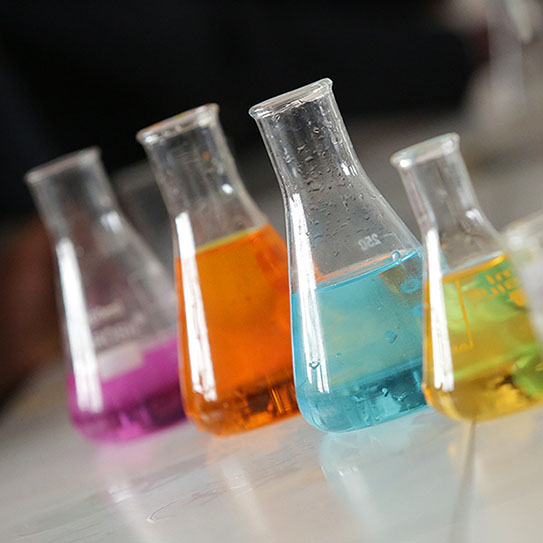HOW MUCH DO you remember from learning about the pH scale in science class? Don’t worry; if you forgot all of it, we’ll give you a little refresher, because acids and bases are pretty important when it comes to the health of our teeth and gums.
A Crash Course in the pH Scale
The pH scale is how we measure how acidic or basic a substance is. The scale goes from 1 to 14. Neutral substances (like water) have a pH of 7, while highly acidic things are lower on the scale and highly basic things are higher on the scale.
To give you an idea of where some common substances land, orange juice ranges from 3.3 to 4.2 and stomach acid is all the way down between 1.5 and 2.5. Soap is mildly basic at between 9 and 10, and bleach is a powerful base at 12.5. What pH is best for our mouths?
Ideal Oral pH
The human body isn’t all the same pH. Our skin is happiest when mildly acidic (with a pH of about 5.5), but blood should be slightly basic (7.4). For our teeth and gums to stay as healthy as possible, we want our oral pH to remain neutral the majority of the time. An unhealthy mouth is more acidic, which can seriously damage tooth enamel over time. Tooth enamel is extremely hard so that it can withstand a lifetime of chewing, but it begins eroding at a mildly acidic pH of 5.5.
What Makes Mouths Acidic?
So how does acid end up in our mouths? The most direct way is by eating or drinking something tart or sour. The bubbles in soda pop, regular and diet alike, come from carbonic acid even though not all soda tastes sour. Our mouths can also become acidic indirectly. When we consume sugary or starchy things, harmful oral bacteria eats the leftovers and excretes acid onto our teeth and gums as a waste product. Acid reflux or vomiting also introduces more acid to the mouth.
Saliva Is the First Line of Defense Against Acid
Fortunately, our mouths have a built-in defense mechanism against acid: our spit! Saliva washes away leftover particles of food and neutralizes our oral pH over time. This is what makes dry mouth so dangerous to our teeth and gums beyond the way it can make chewing and swallowing difficult. Our teeth are left vulnerable to acid erosion without enough saliva.
What can we do to help our saliva do this critical job? We can avoid sipping on or snacking on sugary drinks and treats. Every time we consume something acidic or containing sugar or starch, we reset the clock on our saliva neutralizing our oral pH. That’s why we recommend keeping the treats to mealtimes instead of continuous sipping and snacking.
Consume Less Sugar and Acid
We can also reduce the overall amount of sugary or acidic things we eat, which means minimizing the soda and sugary treats along with breads and dairy products and adding in more fruits and veggies.
Let’s Unite in the Fight Against Enamel Erosion!
Eating less sugary or acidic food and keeping the ones you do to mealtimes will really help your oral pH stay neutral, but it’s not a replacement for twice-daily brushing and daily flossing — nor is it a replacement for regular dental appointments! These habits are still essential to lifelong oral health.

